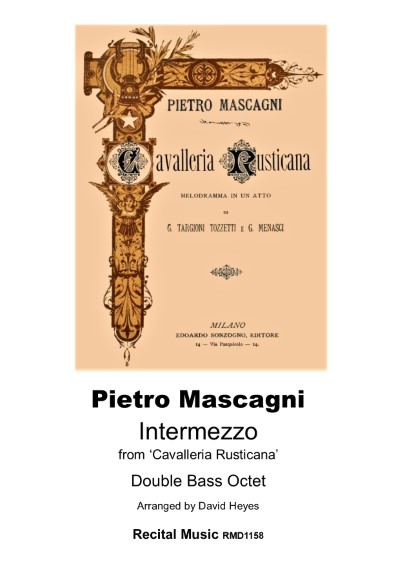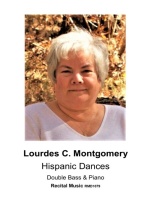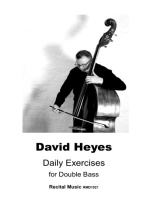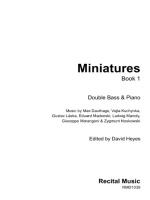Your basket is currently empty!
Intermezzo

Description
The orchestral Intermezzo is heard between the two scenes of Cavalleria Rusticana’s single act, and evokes the Easter day religious spirit of the opera’…s setting. This is the most famous melody in the opera and has been arranged for many instrumental combinations, also used in films including Raging Bull and The Godfather: Part III.
The music is wonderfully evocative and lyrical, emphasising the sonorous character and possibilities of the Double Bass, Octet, and this is a crowd pleaser on every occasion.
Pietro Mascagni (1863-1945) was an Italian composer and is known for writing 15 operas. He was successful during his lifetime, as both composer and conductor, and is remembered today for his one-act operatic masterpiece Cavalleria Rusticana, composed in 1890.
“In July 1888 the Milanese music publisher Edoardo Sonzogno announced a competition open to all young Italian composers who had not yet had an opera performed on stage. They were invited to submit a one-act opera which would be judged by a jury of five prominent Italian critics and composers. The best three would be staged in Rome at Sonzogno’s expense. Mascagni heard about the competition only two months before the closing date and asked his friend Giovanni Targioni- Tozzetti, a poet and professor of literature at the Italian Royal Naval Academy in Livorno, to provide a libretto.
The opera was finally submitted on the last day that entries would be accepted. In all, 73 operas were submitted, and on 5 March 1890, the judges selected the final three: Niccola Spinelli’s Labilia, Vincenzo Ferroni’s Rudello, and Mascagni’s Cavalleria Rusticana.”
The opera is now often partnered with Leoncavallo’s one-act opera I Pagliacci and the instrumental Intermezzo has developed a life of its own and has been arranged for many different instrumental ensembles. The music is lyrical and dramatic, emphasising the sonorous qualities of the Double Bass, Octet, and would be ideal for any audience or occasion.
R.R.P £9
Our Price £7.65




